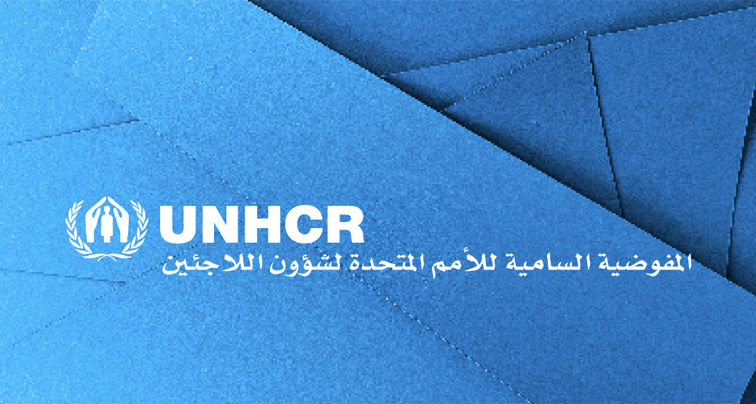
UNHCR: Considering Expansion of Activities Following Success in Chad
moatinoon
The United Nations High Commissioner for Refugees (UNHCR) stated that humanitarian partners in El Gedaref are still facing access constraints due to the rejection and delayed approval of travel permits to enter refugee camps. This forces partners to cancel or postpone planned activities.
Regarding displacement cases in Sudan, in an update for the period between January 11 and 17, the UNHCR explained that 1,050 families had fled to Damazin in the Blue Nile state from Wad Madani in the Gezira state following an escalation of conflict in mid-December. Some families are hosted by the local community in the Rousaires locality, while others are accommodated in the Damazin locality. Some of the displaced families have no relatives in Damazin, so gathering points were opened in Damazin schools with the approval of the Blue Nile government through the Humanitarian Aid Commission. All gathering points are managed and supported by Blue Nile communities, according to the Humanitarian Affairs Coordination Office and the Humanitarian Aid Commission.
In an assessment of the gathering sites in Damazin, Blue Nile state, the international organization emphasized the need for rapid shelter and a response to non-food items, noting that it had started distributing basic relief items to a total of 150 families comprising 1,544 individuals.
In the Um Raquba camp in El Gedaref, the UNHCR distributed hygiene kits to 420 males and 374 females and non-food items to 712 families comprising 3,931 individuals on behalf of implementing partners during the reporting period.
The UNHCR, the World Food Programme (WFP), and UNICEF are considering expanding their activities to North, South, and East Darfur after the success of cross-border activities between Sudan and Chad. They praised the efforts of the Governor of West Darfur and the Commissioner of Humanitarian Aid in Geneina for facilitating the movement of individuals and supplies across the border during the reported week. The governor pledged to assist subsequent cross-border movements to these states through Adre to Geneina.
In North Darfur, about 50 families from Abu Shouk and Salam IDP camps were displaced to western neighborhoods within El Fasher following clashes on January 9. Due to the lack of security along the route, the transport of 8,800 plastic sheets and 3,000 mosquito nets from El Fasher to East and South Darfur and from El Fasher to Nyala and Daein is still pending. To avoid potential losses, the UNHCR is exploring the option of distributing materials in North Darfur or working through partners to transport non-food items.
The state continues to face challenges with mobile phone network connectivity for extended periods, significantly affecting protection monitoring in hotspots. Similarly, communications and network connectivity pose challenges, as WiFi stations are monitored and restricted by the armed group in Nyala city. Special network coverage cannot be relied upon, particularly in West and Central Darfur.
In the White Nile state, the local government restricted the movement of South Sudanese citizens within and outside the camps to limit the refugees involvement in the conflict. Currently, only medical referrals are allowed. The UNHCR is discussing with authorities how to ease restrictions to allow refugees unimpeded access to services available inside and outside the camps.
Regarding the situation in South Darfur, civilians, including refugees, are fleeing from Nyala city to neighboring localities in South Darfur, surrounding IDP camps, and to the states of Central, West, and East Darfur due to aerial bombings on Nyala. Some are moving to adjacent localities due to fear of escalating air raids. It is reported that 50 families arrived in Geneina, West Darfur, and another 45 refugee families from the Central African Republic arrived from Nyala to Um Dukhun locality in Central Darfur last month.
In East Darfur, an increase in spontaneous return cases of refugee families to South Sudan was reported. According to community protection networks, the lack of humanitarian services is a significant factor in return operations. Return areas include Raja County in West Bahr el Ghazal state, Gok Machar, Marial Bai, and Awiel in Northern Bahr el Ghazal state.
A total of 550 patients received medical consultations at refugee health centers in Kario, and 18 patients were admitted for short-term residency medical services. The death of a refugee child due to malnutrition was reported, and 132 women received reproductive health services, with no reports of new disease outbreaks.
In Wadi Halfa, protection offices managed by the Sudanese Red Crescent Society and mobile protection units continued to support persons with disabilities through dedicated referrals for food, health, and protection services. The protection networks in all locations coordinate continuously with the protection team, despite the recent relocation of UNHCR staff and some partners from the White Nile state.
The national organization working in Nyala city, South Darfur, named Our Development Society (BSD), successfully removed 771 unexploded ordnance and war remnants from residential areas, markets, and facilities. It engaged with approximately 7,000 people through Mine Risk Education (MRE) awareness sessions.

